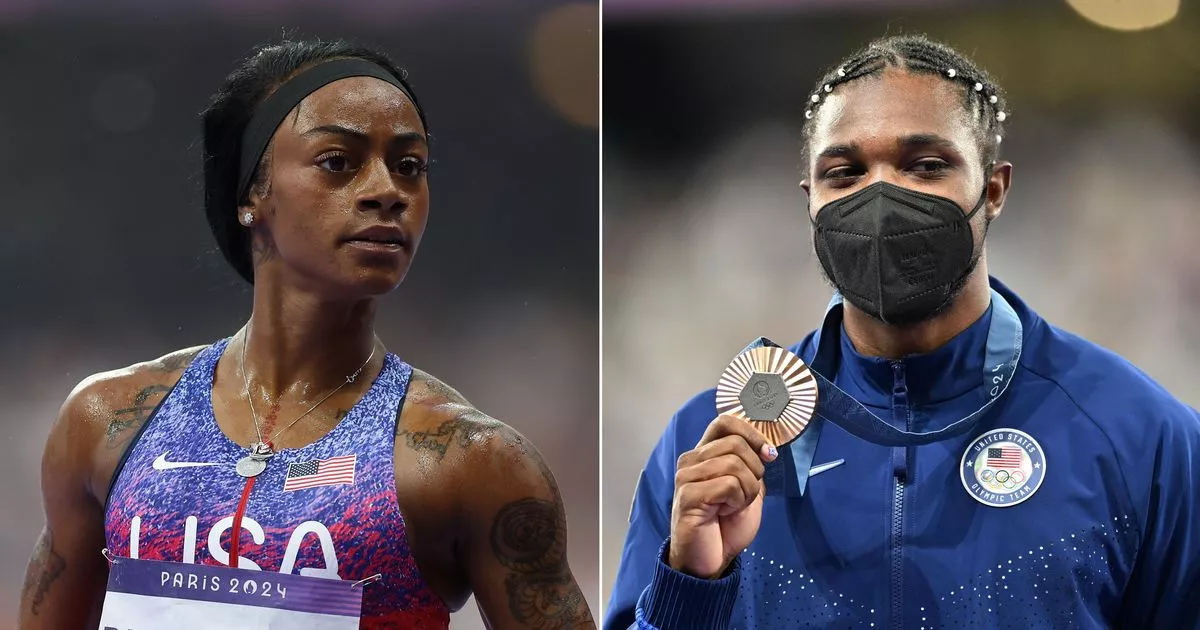Sha’Carri Richardson gets a tough lesson from Noah Lyles after throwing a cryptic suggestion.
Sha’Carri Richardson and Noah Lyles are two prominent figures in track and field, each with their own distinctive style and achievements. Recently, Richardson, a sprinter known for her vibrant personality and explosive performances, made a cryptic suggestion on social media that sparked significant reaction within the athletics community.
Richardson’s suggestion seemed to cast doubt on the integrity of Lyles’ recent accomplishments. Lyles, a sprinter celebrated for his prowess in the 100m and 200m sprints, had been dominating the track, and his success was a topic of much discussion. Richardson’s post, though vague, implied that there might be something untoward about Lyles’ recent victories.
The athletics world is no stranger to controversies and rivalries, but this particular exchange was notable for its public nature and the personalities involved. Lyles, known for his professionalism and focus on his craft, responded to Richardson’s insinuation with a direct and measured approach. He took the opportunity not only to defend his achievements but also to address the broader implications of such accusations.
In his response, Lyles emphasized the hard work and dedication that go into his training and competitions. He highlighted the rigorous testing procedures and the commitment to fair play that underpin the sport. Lyles’ reaction was both a defense of his personal integrity and a broader statement about the importance of respecting athletes’ accomplishments without unfounded speculation.
Richardson’s suggestion and Lyles’ response underscore a larger issue in sports where personal rivalries and public scrutiny can sometimes overshadow the athletes’ genuine efforts and achievements. The incident serves as a reminder of the pressure athletes face not only to perform but also to manage public perceptions and interpersonal dynamics.
This exchange between Richardson and Lyles is indicative of the competitive nature of track and field and the intense scrutiny that athletes endure. It also highlights the need for maintaining respect and professionalism in discussions about sports, where the focus should ideally remain on the athletes’ performances and the sport itself rather than personal disputes or speculative remarks.
In the end, both athletes have used this situation to reinforce their commitment to the sport and to each other, despite the tension. For Lyles, it was an opportunity to affirm his dedication and achievements, while for Richardson, it was a moment to reflect on the implications of her comments and the value of constructive dialogue within the athletics community.
